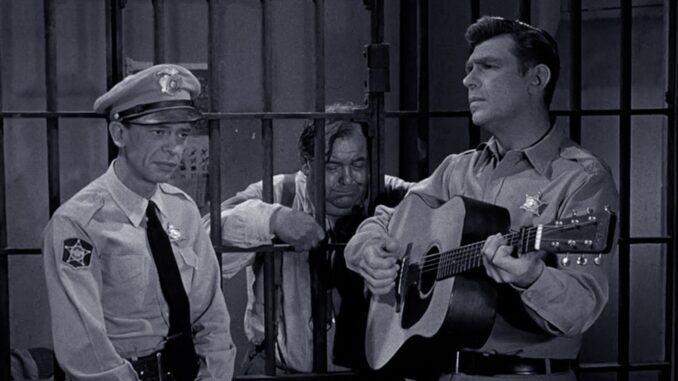
Mayberry's Wildcard Finds His Voice
Mayberry, as legend and nostalgia would have it, was a town stitched from sameness. Its days unfolded with the predictable rhythm of a grandmother’s rocking chair, its citizens a tapestry woven with threads of common sense, community spirit, and an endearing resistance to change. Yet, even in such a perfectly ordered tableau, there occasionally appears a thread of a different hue, a stray stitch that, at first glance, seems to mar the pattern. This was the Wildcard, and for years, Mayberry’s Wildcard was a quiet man named Elias Thorne.
Elias was not an outsider in the traditional sense; he had always been there, a fixture like the old oak in the town square, but one often overlooked. He owned the ramshackle hardware store on the edge of town, a chaotic repository of rusted nails, forgotten tools, and peculiar inventions that never quite caught on. Elias himself was a man of few words, his thoughts seemingly as jumbled as his shop aisles. He ambled rather than walked, his gaze often fixed on some distant, unseen point, and his contributions to town hall meetings rarely extended beyond a thoughtful, but unheard, hum. Mayberry loved its eccentricities, true, but Elias was less eccentric and more… muted. He was a presence, but rarely a voice.
His “wildcard” status wasn't born of rebellion or overt difference, but of an quiet unpredictability. While everyone else followed the known paths, Elias would occasionally resurface with a bewildering observation about bird migrations, a strange, perfectly preserved arrowhead found in his garden, or a sudden, profound insight into the mechanics of the old town clock. These moments were fleeting, like wisps of smoke, quickly dissipated by the town’s bustling, practical conversations. He was a muted chord in Mayberry’s cheerful symphony, a piece of a puzzle that didn't quite seem to fit anywhere specific.
The turning point, as it often is in such tales, arrived with a crisis that threatened the very fabric of Mayberry’s placid existence. A prolonged drought had settled over the valley, wilting crops, drying up streams, and, most critically, jeopardizing the annual Apple Blossom Festival, a tradition stretching back generations. The town council met daily, their brows furrowed with worry. Ideas were floated, debated, and dismissed. Committee after committee struck out, their collective wisdom failing to conjure rain from a mercilessly clear sky. Despair, a rare visitor in Mayberry, began to creep in.
It was during one particularly bleak council meeting, held in the stifling heat of the town hall, that Elias Thorne found his voice. Most residents had already gone home, tired and defeated. Only a handful of the most dedicated, or perhaps most stubborn, remained. Elias, as always, sat in the back, hunched over, seemingly lost in his own world.
"We're out of options," Mayor Thompson sighed, wiping his brow. "Unless someone has a miracle up their sleeve, the festival is off."
A profound silence descended, heavier than the summer air. Then, a low, gravelly sound emerged from the back row. "The old spring," Elias mumbled, almost to himself.
Everyone turned. Elias, startled by the sudden attention, flinched. "The… the old spring," he repeated, a little louder, his eyes scanning the room as if surprised to find himself the center of attention. "Grandpa Jedediah used to talk about it. Buried deep, behind Miller's Ridge. Fabled to never run dry, even in the driest years."
A scoff broke the silence. "That's an old wives' tale, Elias," scoffed Mr. Henderson, the grumpiest councilman. "A myth for children."
But Elias, to everyone's astonishment, didn't retreat. A strange resolve settled on his face, his eyes, usually unfocused, now sharp and direct. "Jedediah wasn't one for tales, Mr. Henderson," he said, his voice gaining a surprising resonance. "He was a well-digger. He followed the water, not the lore. And he spoke of a particular rock formation, like a sleeping giant's knuckles, that marked its entrance."
He then proceeded, in halting but increasingly confident tones, to describe geological features only an old-timer or a meticulous observer could know. He spoke of an ancient, forgotten network of underground channels, details so precise, so unexpected from the quiet hardware man, that the council members leaned forward, their skepticism warring with a dawning curiosity. He didn't just say it; he illustrated it with his hands, tracing lines in the air, pointing to unseen landmarks. His voice, once a muted hum, was now a steady, compelling current.
The next morning, armed with Elias’s surprisingly accurate directions, a small team of townspeople, led by a now-intrigued Mayor Thompson, ventured behind Miller's Ridge. They found the "sleeping giant's knuckles." And after hours of digging, guided by Elias’s uncanny intuition for the land, they unearthed it: a gurgling, powerful spring, its water cool and clear, a lifeline for their parched community.
The water saved the Apple Blossom Festival, but Elias Thorne’s voice saved something more profound. He had not just offered a solution; he had offered a forgotten narrative, a piece of Mayberry’s own history that only his unique perspective, his quiet observations, and his unhurried way of gathering knowledge had allowed him to retain.
From that day on, Elias was no longer merely a fixture. His quiet contributions were sought, his hums listened to, his quirky insights valued. He hadn't transformed into an orator or a social butterfly; he was still Elias, the hardware man. But Mayberry had learned that its strength wasn't just in its collective sameness, but in the individual threads, however unconventional, that enriched its weave. The Wildcard had found his voice, and in doing so, he had proven that even in the most predictable of places, the greatest treasures are often found not in the loudest pronouncements, but in the quiet depths of those who once seemed to have no voice at all.